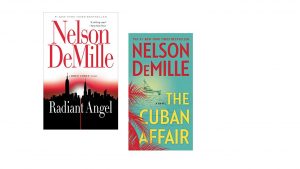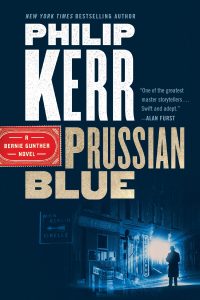While this is not a myth-creating book, you will find it impossible to read this biography and come away as anything less than a fan of a decent man who did his best under difficult circumstances. I have always respected McCullough’s research and attention to detail, but this book is also just a cracking good read.
Many have been brought up – perhaps by the educationocracy that still worships at the altar of Marxism and FDR – with the caricature of Harry Truman as a bumbler selected for his insignificance who fell into office and then screwed it up. He has also been portrayed in pro-military circles as the personification of foolish political interference in military matters; yet with his experience in World War I he had as much military experience in the most brutal conflict on record as any prior or subsequent President except those few who were career military men. FDR, by contrast, winner of the greatest war this nation ever fought, had no military service except as Secretary of a peacetime Navy, and as one of the richest men in America was hardly in a position to sincerely understand the problems of regular people.
We all know of the Truman-Dewey polling fiasco, his decision to use the atom bomb, and probably of his conflict with MacArthur. But unless you are a history buff of that era, you do not know of his reluctant climb through the party machine, his financial dependence on his parents-in-law, his valiant service in the short but ugly experience of World War I, his creation of and service on the highly-effective committee for overseeing waste and abuse during World War II, and Bess Truman’s total unsupportiveness in his White House years. McCullough does not gloss over any of this, and indeed it is these experiences perhaps that shape Truman’s character (something that many of our recent politicians lack utterly).
Those of us who are accustomed to the imperial Presidencies, and the strange but never-investigated accrual of wealth by politicians of all classes who come into office as middle-class and leave office as multi-millionaires, will be astounded to learn that when he completed his term as President, he just went home to Independence and lived more or less on the financial edge, with a minimal pension after a lifetime in public service, and he was politically persecuted for the rest of his life by the Republicans because he was all that was left of the FDR administration that had persecuted them, and by the Democrats because he was all that was left of the FDR administration but he was not FDR.
Truman was a plain-spoken person who never lost track of his farming roots. For this reason the Eastern aristocracy looked down on him, even as they were embracing the principles of Marxism, and in the scholastic presses (which until recently were based almost exclusively in Boston and New York) he was denigrated because he was not the demigod Roosevelt (who as we now know was himself mostly a caricature by 1940). Since 1970 or so he has been overlooked by Republicans because they were not in search of a Democratic role model, and by today’s anti-American Democrats because he inconveniently seemed to be quite sincere in actually believing in truth, justice and the American way.
Perhaps the status of limitations for political correctness is about 50 years. In that case, now is the time to read McCullough’s balanced portrait of a great American.
 The second of Jack Forsithe’s books is a fast-moving read that combines the genres of thriller and alien-type fantasy. It is an easier story to follow than the first volume, Heart in the Clouds, because the four original separate story-lines have merged into two at the book’s opening and quickly becomes a single plot. Naturally that would be easier to follow, although it is hard for me to assess that since I did read the first volume first, so I had already become familiar with the whole other-creature setup (and their tongue-twister moniker, the Zighorottiz). Although Forsithe does provide enough back story to pick up on the ideas, it would definitely be worth your while to read Heart also (here’s the review). Forsithe himself also seems to be more comfortable with his own story-telling style and there is less reliance on Clancy-style descriptions of equipment, and his voice is getting stronger.
The second of Jack Forsithe’s books is a fast-moving read that combines the genres of thriller and alien-type fantasy. It is an easier story to follow than the first volume, Heart in the Clouds, because the four original separate story-lines have merged into two at the book’s opening and quickly becomes a single plot. Naturally that would be easier to follow, although it is hard for me to assess that since I did read the first volume first, so I had already become familiar with the whole other-creature setup (and their tongue-twister moniker, the Zighorottiz). Although Forsithe does provide enough back story to pick up on the ideas, it would definitely be worth your while to read Heart also (here’s the review). Forsithe himself also seems to be more comfortable with his own story-telling style and there is less reliance on Clancy-style descriptions of equipment, and his voice is getting stronger.
 Two recent offerings from Nelson DeMille explore his similar but different sub-genres and both are well worth your time.
Two recent offerings from Nelson DeMille explore his similar but different sub-genres and both are well worth your time.
 The back cover promises a “fantasy thriller” and it delivers. This is Jack Forsithe’s first novel and the highest tribute one can pay to any such work is that I am looking forward to the sequel even though I am not usually into this genre. If you’re not immersed in science-fiction, you may be put off by the complexity of the other-worlders’ species name (Zighorottiz), but don’t let that scare you off: it’s about the only bit of irregular verbiage in the book.
The back cover promises a “fantasy thriller” and it delivers. This is Jack Forsithe’s first novel and the highest tribute one can pay to any such work is that I am looking forward to the sequel even though I am not usually into this genre. If you’re not immersed in science-fiction, you may be put off by the complexity of the other-worlders’ species name (Zighorottiz), but don’t let that scare you off: it’s about the only bit of irregular verbiage in the book. An excellent read in another of the Bernie Gunther series of WW2-era detective novels. As is the style for the series, the story alternates between a post-war case in which Bernie is involved as a private eye and a pre-war case in which he is engaged in his capacity as a police detective working (under slightly more degree of protest than the regime tolerates) for the Third Reich. The link between the two stories in this case is Friedrich Korsch who had been his understudy in the prewar years; after the war, as a Berliner, Korsch has to work (also with some reservations) for the Soviet puppet government in East Germany, and in that role is responsible for making sure that Bernie does not discover or undermine what his new bosses are up to.
An excellent read in another of the Bernie Gunther series of WW2-era detective novels. As is the style for the series, the story alternates between a post-war case in which Bernie is involved as a private eye and a pre-war case in which he is engaged in his capacity as a police detective working (under slightly more degree of protest than the regime tolerates) for the Third Reich. The link between the two stories in this case is Friedrich Korsch who had been his understudy in the prewar years; after the war, as a Berliner, Korsch has to work (also with some reservations) for the Soviet puppet government in East Germany, and in that role is responsible for making sure that Bernie does not discover or undermine what his new bosses are up to.